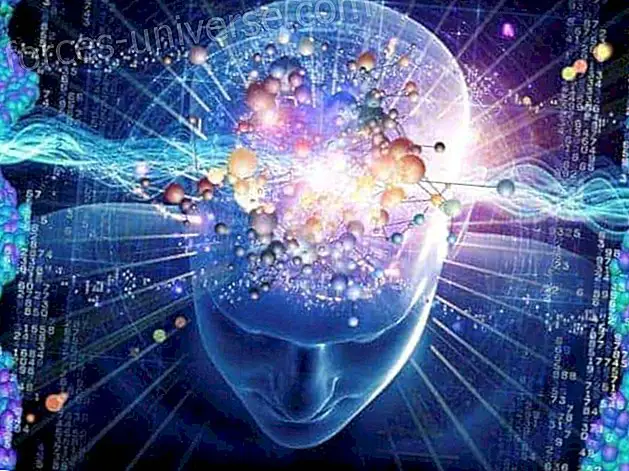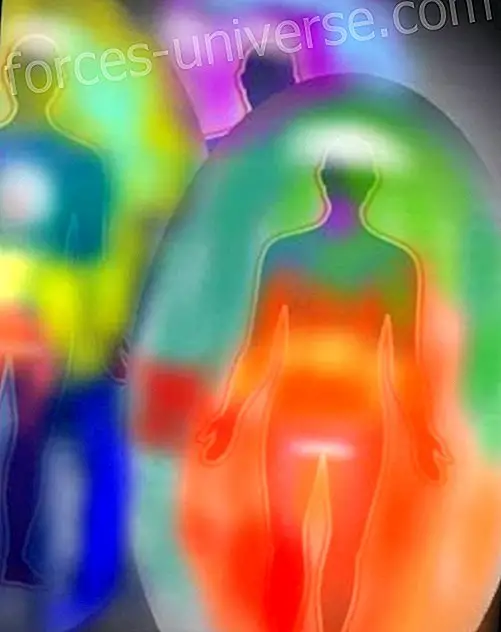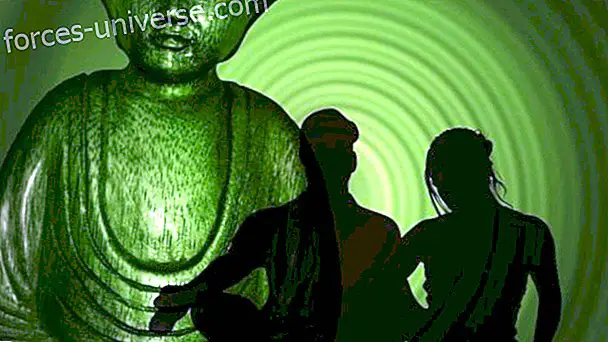
Birth
There was a small country in what is now Southern Nepal that was ruled by the Shakyas clan. The head of this clan and king of the country was called Shuddodana Gautama and his wife was the beautiful Mahamaya. When Mahamaya was waiting for her first child, she had a strange dream in which an elephant calf blessed her with her trunk, which was interpreted as a very good omen.

As was customary at that time, when the time of birth for Queen Mahamaya approached, she traveled to her father's kingdom to give birth. But during the long journey, labor pains began. In the small town of Lumbini, she asked her maids to take her to a nearby grove in search of privacy. A large tree descended a branch towards her to support the birth. It is said that the birth occurred almost painlessly, despite the fact that the child had to be released from his side. After this, a gentle rain covered the mother and the child to clean them.
It is said that the child was born completely conscious. He could speak, and he told his mother that he had come to free all mankind from suffering. He could stand, and walked a short distance in each of the directions. Lotus flowers were born in each of their tracks. He was named nomSidharta Walker Siddhartha, which means "he who has achieved his goals." Unfortunately, Mahamaya died seven days after delivery. After this, Siddhartha was raised by Mahaprajapati, his mother's kind sister.
King Shuddodana consulted Asita, a famous fortune teller, about her son's future. Asita revealed that it would be one of two things: He could become a great king, even an emperor. Or he could become a great sage, savior of humanity. The king, excited about the idea of his son becoming a king like himself, decided to protect the child from anything that could lead him to religious life. This is how Siddhartha was guarded in one or another of his three palaces, and was prevented from experiencing many of the things that most boys would consider ordinary. He was not allowed to see the old, the sick, the dead, or anyone who dedicated himself to spiritual practices. Only beauty and health surrounded Siddhartha.
Siddhartha became a strong and beautiful young man. As prince of a warrior caste, he trained in the arts of war. When he reached the age of marriage, he won the hand of a beautiful princess from a neighboring kingdom, beating all his competitors in different disciplines. His name was Yashodhara, and both married at 16 years of age.
While Siddhartha continued to live in the luxury of his palaces, he slowly aroused in him the restlessness and curiosity about the world behind the palace walls. Finally, he asked that he be allowed to see his town and his lands. The king prepared everything carefully so that Siddhartha did not see the kind of suffering he feared could lead to religious life, and decreed that only young and healthy people could present themselves to the prince. While being driven through Kapilavatthu, the capital, he had the opportunity to see an elderly couple who had accidentally stopped at the parade route.
Surprised and confused, he went after them to discover who they were. Then he passed a group of people who were seriously ill. And finally he discovered a funeral ceremony by a river, and for the first time in his life he faced death. He asked his friend and squire Chandaka the meaning of all these things, and Chandaka informed him of the simple truths that Siddhartha should already know at that point in his life: that we all grow old, get sick and finally die.
Siddhartha also saw an ascetic, a monk who had renounced the pleasures of the flesh. The serene look on the monk's face lasted in Siddhartha's memory for a long time. Later, I would say, referring to that time:
When ignorant people see someone old, they feel horror and dislike, although they will also be old one day. I thought: I don't want to be like ignorant people. After that, I couldn't feel the drunkenness of youth again.
When ignorant people see someone sick, they feel horror and dislike, although they will also be sick one day. I thought: I don't want to be like ignorant people. After that, I couldn't feel the drunkenness of health again.
When ignorant people see someone dead, they feel horror and dislike, although they will also die someday. I thought: I don't want to be like ignorant people. After that, I couldn't feel the drunkenness of life again. (AN III.39, adapted)
Tempted Sidharta
At 29, Siddhartha realized that he could not continue living happily the way he had done so far. He had discovered the suffering, and he wanted more than anything in the world to discover how he could overcome it. After giving a goodbye kiss to his sleeping wife and newborn son Rahula, he slipped away from the palace with his squire Chandaka and his favorite horse Kanthaka. He got rid of his rich clothes, cut his long hair, and gave Chandaka the horse telling him to return to the palace.
He studied for a brief period with two of the most famous gurus of those times, but found his practices empty.
Then he began to practice austerity and self-mortification along with a group of five ascetics. For six years, I practiced. The sincerity and intensity of their practice were so surprising that, very soon, the five ascetics became followers of Siddhartha. But the answers to his questions did not appear. He redoubled his efforts, rejecting water and food, until he was at death's door.
One day, a peasant named Sujata saw this famished monk and took pity on him. I begged him to take some of his rice pudding. Siddhartha discovered then that these extreme practices were not taking him anywhere, and that in fact it would be better to find an intermediate path between the extremes of a life full of luxuries and the way a of self-mortification. So he ate, drank and bathed in the river. The five ascetics saw him and concluded that Siddhartha had left ascetic life and taken the path of the flesh and therefore abandoned him.
In the town of Bodh Gaya, Siddhartha decided that he would sit under a certain fig tree as long as it took until he found the answers to the problem of suffering. He sat for many days, first in deep concentration to clear his mind of all distractions, then in full meditation, to open himself completely to the truth.
He began, he says, to remember all his previous lives, and to see everything that was happening in the entire Universe. On the full moon of May, with the arrival of the morning star, Siddhartha finally got the answer to the problem of suffering and became the Buddha, which means that he is awake. .
It is said that the evil Mara tried to avoid this great event. First he tried to scare Siddhartha with storms and demon squads. Siddhartha remained calm. Then he sent his three beautiful daughters to tempt him, but it was in vain. Finally, he tried to catch Siddhartha in his own ego by calling his pride, but this also failed. After having overcome all these temptations, Siddhartha touched the ground with one hand and asked Earth to be his witness.
Sidharta becomes the Buddha
Siddhartha, now turned into the Buddha, remained sitting under the tree, called the tree of enlightenment, for many days. It seemed to him that this knowledge he had acquired was very difficult to communicate to others. Legend has it that Brahma, the king of the gods, convinced the Buddha to teach, telling him that maybe some of us only have a small speck in our eyes and that we can wake up just by hearing his story. Buddha agreed to teach her.
In Sarnath, near Benares, about a hundred miles from Bodh Gaya, he crossed the five ascetics he had practiced for so long. There, in a deer park, he gave his first sermon, called "the beginning of the wheel of doctrine." He explained the Four Noble Truths and the Eightfold Path. They became their first disciples and the beginning of the Shangha or community of monks.
King Bimbisara of Magadha, after hearing the words of Buddha, gave him a monastery near Rahagriha, his capital, to be used in the rainy season. This and other generous donations allowed the convert community to continue their practices over the years, and gave many more people the opportunity to hear the teachings of the Buddha.
As time went by, his family members approached him, including his wife, his son, his father and his aunt. His son became a monk and is especially remembered for a sutra based on a conversation between father and son about the dangers of lies. His father became a lay follower. Because of the sadness caused by the departure of his son and grandson towards the monastic life, he asked Buddha to create the rule that a man should have his parents' permission to become a monk. Buddha accepted. His aunt and his wife asked him to join the Sangha, which was originally composed only of men. The culture of that time placed women far below men in importance, and at first it seemed that allowing women to enter the community would weaken it. But Buddha accepted them, and his aunt and his wife became the first Buddhist nuns.
Buddha said that it did not matter the status that people had in the world, nor their past, their wealth or their nationality. Everyone was able to enlighten, and everyone was welcome in the Sangha. The first Buddhist monk who was ordained, Upali, had been a barber, but was placed above others who had been kings, just because he had made his vows before them!
Buddha's life was not free from disappointments. His cousin Devadatta was an ambitious man. As a convert and as a monk, he felt he should be given greater power in the Sangha. He managed to influence some monks with a call to extreme asceticism. He even conspired with a local king to assassinate Buddha and take control of the Buddhist community. Of course, it failed.
Buddha attained enlightenment at 35 years of age. He was teaching all over northwestern India for 45 years.

Sidharta dies
At 80 he told his friend and cousin Ananda that he would abandon them all soon. And this came true in Kushinagara, less than a hundred miles from his homeland, where he ate some spoiled food and became very ill. He went into deep meditation in a forest and died.
His last words were…
“All created things are unstable; work hard. ”
Author: Master Renée Muchen
Territorial Delegate of the Ong Hao of Barcelona in Argentina.
www.sohamreiki.com
Collaborator of the Great White Brotherhood
Professor of Therapeutic Yoga.






